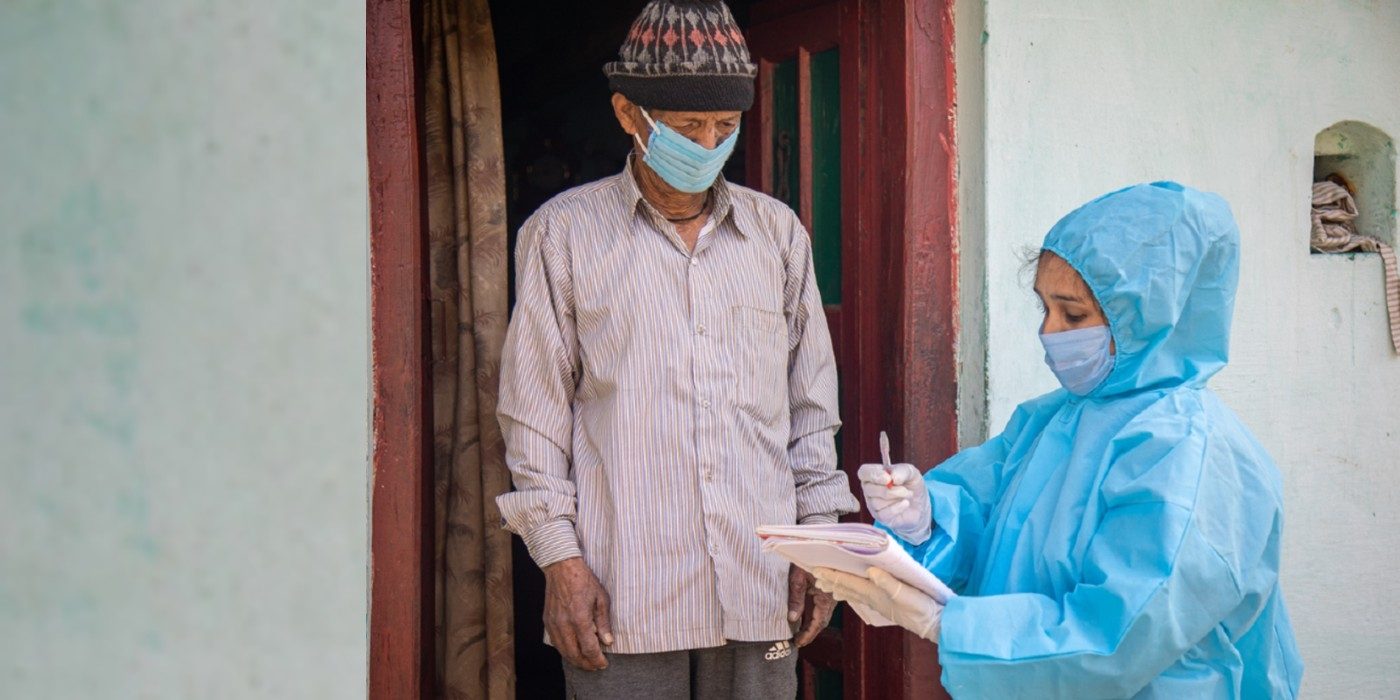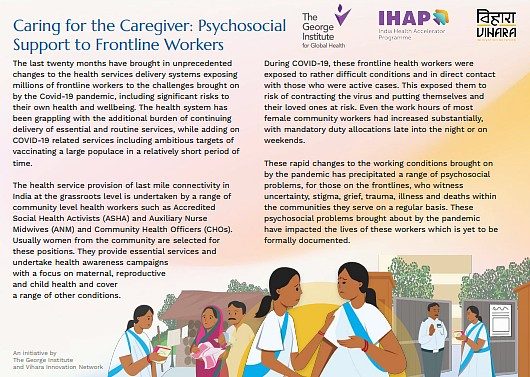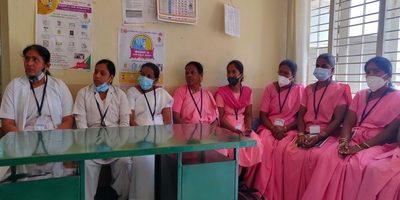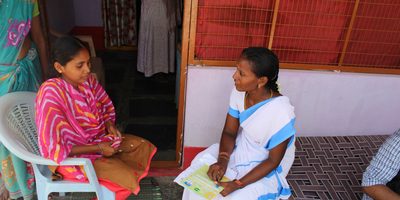
This #IWD2022 Let’s Understand - The Mental Health Impact on Female Frontline Healthcare Workers
The George Institute’s India Health Accelerator Programme and Vihara Innovation Network in a collaboration designed and facilitated a series of workshops to capture the stressors faced by female frontline healthcare workers (FLWs) on not just their official responsibilities, but also while balancing their role as women within their household and engaging with communities. Our workshops were designed to also capture both healthy and unhealthy coping mechanisms many of our FLWs have adopted to cope with these stressors.
This International Women’s Day we pledge to stand with our women workforce who worked at the forefront during the pandemic in extremely demanding circumstances without receiving the recognition they deserved. Celebrating their achievements and stepping towards equality they deserve in the health systems, we, through these workshops, aimed to understand how the changing landscape of work with additional Covid-19 related responsibilities impacted their psychosocial health.
Caring for the Caregiver: Psychosocial Support to Frontline Workers
Since March 2020, unprecedented changes to the health services delivery systems exposing millions of frontline workers to the challenges brought on by the Covid-19 pandemic, including significant risks to their health and wellbeing. The health system has been grappling with the additional burden of continuous delivery of essential and routine services while adding on COVID-19 related services including ambitious targets of vaccinating a large populace in a relatively short period of time.
The health service provision at the grassroots level is undertaken by a range of community-level health workers such as Accredited Social Health Activists (ASHA) and Auxiliary Nurse Midwives (ANM) and Community Health Officers (CHOs). Usually, women from the community are selected for these positions. They provide essential services and undertake health awareness campaigns with a focus on maternal, reproductive and child health and cover a range of other conditions.
These rapid changes to the working conditions brought on by the pandemic have precipitated a range of psychosocial problems, for those on the frontlines, who witness uncertainty, stigma, grief, trauma, illness and deaths within the communities they serve on a regular basis. These psychosocial problems brought about by the pandemic have impacted the lives of these workers which is yet to be formally documented.
Focus areas of our workshops
- Need of Work-Life Balance - Balancing home and work came as a challenge, many of them expressed being made to feel guilty for abandoning their families for work. Focusing on giving the best outputs, they neglected their own physical and psychosocial health.
- Obstructive Work Environment – Female frontline healthcare workers were battling against endless fears while working in a pandemic they felt deterred. Along with the distress of being reprimanded for their mistakes, constant surveillance of their work and commute. The pandemic enforced digital documentation altogether which again served as a huge challenge leading to unsupportive work environments.
- Community Engagement and Peer Support -The pandemic also brought hostility against the FLWs; many women were exposed to traumatic situations such as facing deaths in their communities. A channel to support our frontlines were only their peers and colleagues that were provided emotional support in these difficult times.
A way forward
The workshops organised for 18 frontline workers in Andhra Pradesh qualitatively engaged with women about the way the pandemic has affected their psycho-social wellbeing by looking at their lives holistically. Key intervention and immediately actionable recommendations are designed in our report coming up on 15th March, that can help reduce the stress experienced by frontline workers daily through this health crisis.
“Caring for the Caregiver” starts with collective action and needs constant attention to address the psychological needs of our frontline health care workforce. We have experienced the crises during and following the pandemic, most particularly being involved with those at the forefront of the pandemic battle, the healthcare workers. In the middle of these crises, we observed streams of innovation in the areas of psychosocial support as a reflection of the care, shared pain, and resilience of the human spirit.
Read full case study - Caring for the Caregiver: Psychosocial Support to Frontline Workers here




